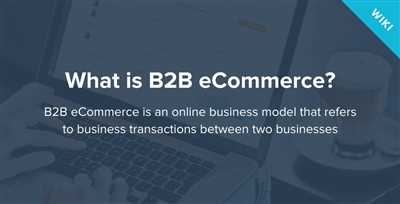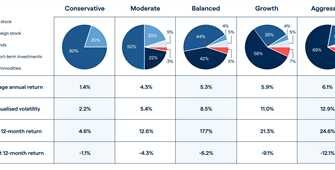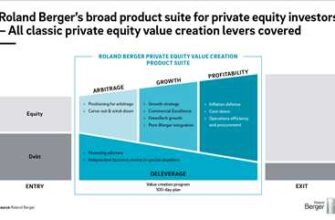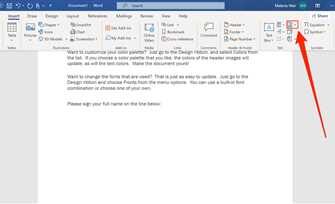
When it comes to e-commerce, the B2B model is becoming increasingly popular. For those who are new to the concept, B2B stands for business-to-business, meaning that companies sell their products or services to other businesses rather than directly to consumers. This business model provides a unique set of capabilities which are different from traditional B2C e-commerce.
One of the key differences in B2B e-commerce is the scalability of the platform. B2B platforms need to be able to handle large quantities of product listings, customer accounts, and sales transactions. Additionally, B2B platforms must provide features that are specific to the needs of businesses, such as bulk ordering, negotiated pricing, and complex product catalogs.
When creating a B2B e-commerce platform, it is important to consider the specific needs of your target audience. Understanding what businesses in your industry are looking for in a B2B platform is crucial for choosing the “right” solution. Some platforms offer industry-specific features or integrations with other software that may be essential for your business.
In concluding, creating a B2B e-commerce platform can be a complex process. The platforms available vary greatly in terms of features, scalability, and ease of use. It is important to thoroughly research and evaluate different options before making a decision. Don’t be afraid to reach out to sources such as industry experts or fellow business owners for guidance along the way. Starting a B2B e-commerce platform may seem like a daunting task, but with the right platform and enough dedication, it can be a highly lucrative venture for your business.
A Beginner’s Guide to the B2B E-Commerce Model
When it comes to B2B e-commerce, there are enough platforms and options out there to make your head spin. How do you know which one is the “right” one for your business? What features and capabilities do you need to consider when choosing a platform?
First, it’s important to note that B2B e-commerce is different from B2C e-commerce. B2B stands for “business-to-business”, meaning the transactions occur between two businesses rather than a business and a consumer. This distinction has implications for the B2B e-commerce model.
In the B2B space, you’ll often find that companies have specific requirements and workflows that differ from those of a B2C business. For example, B2B transactions may involve larger order quantities, complex pricing structures, and customized products or services. It’s important to choose a platform that can handle these unique needs.
When creating a B2B e-commerce platform, scalability is key. As your business grows, you’ll want a platform that can handle increasing numbers of customers, products, and transactions. Look for platforms that have the ability to scale quickly and efficiently.
Another important factor to consider is integration capabilities. A B2B e-commerce platform should be able to integrate with your existing systems, such as ERP, CRM, and inventory management. This ensures that data is shared accurately and efficiently across your organization.
Having a good product information management (PIM) system is also crucial. B2B customers often need detailed product information, such as specifications, images, and pricing. A PIM system can help you organize and manage this data, making it easy for your customers to find and select the products they need.
Lastly, it’s worth noting that B2B e-commerce platforms often require more customization and configuration than B2C platforms. This is because B2B transactions tend to be more complex and varied. Look for platforms that provide enough flexibility to accommodate your business’s specific needs.
In conclusion, when starting out in the world of B2B e-commerce, it’s important to understand the unique features and requirements of the B2B model. Consider the scalability, integration capabilities, and customization options of different platforms. Additionally, having a robust PIM system can greatly improve the customer experience. By keeping these factors in mind, you can choose the “right” platform for your business and set yourself up for success in the B2B e-commerce space.
What do the “right” products mean

When starting a B2B ecommerce platform, it’s important to consider the products you want to offer. Having the right products is crucial to the success of your online business. But what do we mean by the “right” products?
The “right” products are those that meet the needs and demands of your target audience. This means understanding who your customers are, what they are looking for, and how you can provide value to them. It’s important to do some research and analysis to identify the products that will be in high demand in your industry.
One key consideration is scalability. It’s important to choose products that can be easily scaled up as your business grows. This means selecting products that are not only popular now, but that also have the potential for long-term success. Look for products with a large potential market and consider the growth projections for your industry.
Another important factor to consider is the capabilities of your ecommerce platform. Make sure that the platform you choose is capable of handling the specific features and functions that your products require. For example, if you plan on selling customizable products, make sure your platform can handle product configuration and personalization options.
When choosing the “right” products, it’s also important to note that it’s not just about the products themselves, but also about the overall customer experience. Consider how the products will be presented on your ecommerce platform and how they will be delivered to customers. Providing a seamless and enjoyable shopping experience will go a long way in building customer loyalty.
In concluding, selecting the “right” products for your B2B ecommerce platform is a crucial step in creating a successful business. Take the time to research the market, consider scalability and platform capabilities, and think about the overall customer experience. Having the right products will not only attract customers but also keep them coming back for more.
Creating a B2B eCommerce Platform
When it comes to creating a B2B eCommerce platform, there are a few key considerations that you’ll want to keep in mind. Whether you’re a beginner or already have some experience with creating an online platform, it’s important to ensure that you have the “right” platform in place to meet the needs of your B2B customers.
One of the first things to consider is the scalability of the platform. B2B eCommerce platforms need to be able to handle large volumes of orders and customers, so it’s important to choose a platform that can handle this level of traffic.
Another important factor to consider is the capabilities that the platform offers. B2B eCommerce often involves complex transactions, such as bulk ordering and custom pricing. It’s important to choose a platform that can provide these features and meet the specific needs of your B2B customers.
Additionally, when choosing a B2B eCommerce platform, it’s important to note that not all e-commerce platforms are created equal. Some platforms are better suited for B2C businesses, while others are specifically designed with B2B in mind. Make sure to carefully consider the features and capabilities of each platform before making a decision.
A beginner’s guide to creating a B2B eCommerce platform would also include considerations such as what products or services you will offer, how to market your platform, and what kind of business model you will choose. These are all important factors to take into account when starting your B2B eCommerce journey.
Concluding, it’s important to choose your platform wisely. Make sure to consider the scalability and capabilities of the platform, as well as the specific needs of your B2B customers. With the right platform in place, you can quickly establish a successful B2B eCommerce platform.
Concluding Note
In conclusion, starting a B2B ecommerce platform can be a daunting task for beginners. However, with the right guidance, careful consideration, and choosing the “right” online platform, you can quickly begin creating your own B2B ecommerce website.
It is important to note that not all ecommerce platforms are created equal. Some may provide the necessary capabilities for B2B transactions, while others may fall short. Before making a decision, make sure to thoroughly assess the features and scalability of the platform under consideration.
Having a little knowledge of these platforms’ functionalities and what they mean for your e-commerce business can go a long way in making the right choice. Consider the specific needs of your B2B business, the types of products or services you offer, and the level of customization you require.
Remember, creating a successful B2B ecommerce platform goes beyond just having an online presence. It requires a platform that can efficiently handle large volumes of orders, provide seamless integration with other systems, and offer features like inventory management, order tracking, and customer support.
In a constantly evolving digital landscape, having a scalable and reliable B2B platform is crucial for long-term success. While it may be tempting to choose a platform quickly, take the time to research and compare different options to find the one that best suits your unique business needs.
By following this guide and having the necessary knowledge, you can confidently start your B2B ecommerce journey and provide a seamless experience for your customers. So, take the first step and choose your B2B ecommerce platform wisely.
Sources
When it comes to starting a B2B ecommerce business, it’s essential to quickly gather all the information you can. The e-commerce market is a constantly evolving one, and staying on top of the latest trends, tools, and strategies is key to success.
A great place to begin is by creating a model of what you want your B2B ecommerce platform to look like. Start by considering what features and capabilities are important to you. Do you want a simple, user-friendly interface? Or do you need a more robust platform that can handle complex transactions and integrations? Note these requirements down so you have a clear vision of what you’re looking for.
When choosing a B2B ecommerce platform, there are a few key sources you can turn to for guidance:
1. Beginner’s Guides: These guides provide a step-by-step overview of how to start a B2B ecommerce business. They typically cover topics like creating a business plan, choosing the right platform, and marketing your products online.
2. Ecommerce Platforms: Look at the various ecommerce platforms available and consider their scalability, pricing models, and features. Compare them to your requirements to find the platform that best suits your needs.
3. Online Communities: Joining online communities of B2B ecommerce professionals can provide valuable insights and advice. You can ask questions, learn from others’ experiences, and stay updated on the latest industry trends.
4. Case Studies: Reading case studies of successful B2B ecommerce businesses can give you inspiration and ideas for your own venture. Take note of the strategies they implemented, the challenges they faced, and how they overcame them.
5. Industry Experts and Consultants: Reach out to industry experts and consultants who specialize in B2B ecommerce. They can provide guidance specific to your industry and help you navigate the unique challenges you may face.
6. Research Reports: Stay informed about the latest market trends, consumer behavior, and technological advancements by reading research reports. These reports often provide valuable insights into the B2B ecommerce landscape.
In Conclusion, when starting a B2B ecommerce business, it’s important to gather information from the right sources. Consider what you want your platform to look like, and then use beginner’s guides, ecommerce platforms, online communities, case studies, industry experts, and research reports to guide your decision-making process. With enough research and planning, you can create a successful B2B ecommerce business that meets the needs of your customers.










